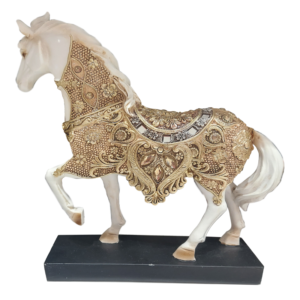Description
The Al-Quran (Arabic: القرآن) is the holy book of Islam, believed to be the word of God (Allah) as revealed to the Prophet Muhammad (PBUH) through the archangel Jibril (Gabriel) over a period of approximately 23 years, beginning in 610 CE. It is considered by Muslims to be the final and complete revelation, following previous scriptures such as the Torah and the Bible. The Quran is written in classical Arabic and consists of 114 chapters, called Surahs, which vary in length, and each Surah is made up of verses, known as Ayahs.
Here are some key features of the Al-Quran:
- Divine Revelation: Muslims believe the Quran is the direct word of God, not a creation of human authorship. It serves as guidance for all aspects of life, including ethics, law, worship, and personal conduct.
- Language and Style: The Quran’s language is considered miraculous for its beauty, depth, and eloquence. Its style is unique, mixing narrative, legal guidance, wisdom, and allegorical expressions.
- Structure:
- Surahs (Chapters): There are 114 Surahs in the Quran, each focusing on different themes. Some are longer, while others are shorter.
- Ayahs (Verses): Each Surah is made up of Ayahs, which number over 6,000 in total.
- The Quran is traditionally memorized by Muslims, a practice known as Hifz.
- Guidance for Life: The Quran covers all aspects of human existence, including theology, law (Sharia), morality, guidance for personal conduct, social justice, and relationships with others.
- The Quran and Science: Many Muslims believe the Quran contains references to natural phenomena, scientific facts, and insights that were ahead of its time, interpreting them as evidence of its divine origin.
- Recitation: The recitation of the Quran is a highly regarded practice in Islam. There are specific rules for how the Quran should be recited (called Tajweed), and it is a central aspect of Muslim worship.
- Translation: While the Quran is in Arabic, translations exist in many languages to make its message accessible to non-Arabic speakers. However, translations are often viewed as interpretations because the original Arabic text is considered inimitable and is believed to carry meanings that cannot be fully captured in any translation.
- Preservation: The Quran has been meticulously preserved over time. It is said to have been compiled into its present form during the caliphate of Uthman ibn Affan in the 7th century.





Reviews
There are no reviews yet.